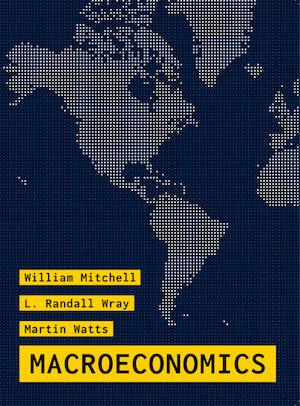As part of her popular Green New Deal platform, the US member of Congress Alexandria Orcasio-Cortez has been utilising Modern Monetary Theory (MMT) to explain how governments can fund environmental policy reforms. But could MMT also be used by the social sector as a message frame to promote social policy reform? In today’s blog post Dr Andrew Joyce from the Centre for Social Impact and Celia Green from UNSW discuss the how the social sector could leverage insights from MMT to promote paradigm shifting social policy reforms.
Read MoreCongestion charging is a feature in many cities around the world, but Australia has been reluctant to introduce such a policy, instead focusing on developing infrastructure. However new analysis from the Grattan Institute suggests that a congestion charge would be a better and fairer way of tackling congestion than spending more on infrastructure. Marion Terril and James Ha from the Grattan Institute discuss the implications below.
This article originally appeared in The Conversation under a Creative Commons licence. Read the original article
Read MoreAustralia’s system of social welfare is based on mutual obligation. But what happens when those obligations become so onerous that people simply stop seeking to claim government benefits? Professor David C. Ribar from The University of Melbourne dicusses this issue for those on Newsart.
This post originally appeared in The Conversation
Read MoreIn this BusinessThink re-post, Dr Ann Kayis-Kumar from the University of New South Wales Business School introduces us to the Nationwide Tax Clinic Program. These federally funded clinics are designed to meet the needs of Australia’s vulnerable taxpayers. Dr Kayis-Kumar explains why and how these clinics came about and concludes with the overarching purpose of the Tax Clinic program, to foster a more socially just tax system.
Read MoreContinuing her series of original posts on Australia's employment services system, Dr Simone Casey (@SimoneCasey) explores the implications of outsourced decision-making in social security through the lens of the ParentsNext program. Dr Casey is an affiliate of the RMIT Future Social Services Institute (@FutureSocialAU).
Read MoreNewstart is in the spotlight with a number of politicians calling for an increase to the support payment. UNSW Canberra Research Fellow Dr Sue Olney explains how Newstart works, how it compares to benefits in other countries and why she believes it needs to be increased.
Read MoreIs wealth inequality threatening Australia’s egalitarian dream?
RMIT University’s Salvatore Ferraro provides a preview of his and Monica Jurin’s presentation at this year’s Australian Conference of Economists in this article originally published in The Conversation.
Read MoreProblems with making financial decisions are often presented as individual issues, but Dr Jeremiah Brown (@JeremiahTBrown) of the Brotherhood of St Laurence argues they are often better understood as instance of structural failure. He illustrates with an example of an aged pensioner trying to change energy providers.
Read MoreThe concept of the ‘middle class squeeze’ has been around for more than a decade, with the term dating back to November 2006, when US Speaker of the House of Representatives Nancy Pelosi used it to provide context to the domestic agenda of the U.S. Democratic Party. This issue has yet to subside, with a recent report from the OECD noting that middle incomes have grown less than the average in many OECD countries, and in some they have not grown at all. The Mandarin’s David Donaldson explains how this trend affects Australia’s middle class, and outlines OECD’s recommendations for how governments can act to support this shrinking group.
Read MoreEffective climate change action needs a lot of money. However, in the Pacific it is not just about delivering dollars. Kirsty Anantharajah gives us three key problems with global climate financing approaches, and offers three possible pathways out.
Read MoreThe release of the Royal Commission into Misconduct in the Banking, Superannuation and Financial Services Industry earlier this month has not had the intended effect of allaying mistrust in the financial services sector in Australia. Despite the enormity of the report, nearly 1,000 pages with 24 entities and companies referred to civil and criminal proceedings, there is a consensus that the major financial corporations involved in the misconduct remain unscathed. In today’s post, Dr. Jonathon Louth examines the silences in this report, especially as it impacts the lives of Indigenous peoples living in rural and remote Australia. Based on his recent research with Indigenous Australians in the Northern Territory, he recommends expanding community and cultural literacies in the financial sector as one of the counter measures to tackle systematic dispossession and marginalisation of vulnerable populations. This piece was originally published in The Conversation on 6 February 2019
Read MoreA new research report from the Consumer Policy Research Centre (CPRC) - The Renter's Journey - follows the common and differing rental experiences of the rental market of four key segments (young singles, women over 55, low income families, and migrant families) and makes recommendations to policymakers for change. The report will be launched in Melbourne on 25 February 2019.
Read MoreIn this post, Ben Spies-Butcher explores the potential role of a levy on superannuation to fund aged care. How might this solution address key issues in aged care funding, such as generational equity and gender equity? The original post is from The Conversation.
Read MoreUnpaid work, part-time and interrupted work, and the gender pay gap are only some of the reasons women are poor in retirement. A lot of the time the reasons are far more complex.
Read MoreProfessor Peter Whiteford examines the Productivity Commission research paper Rising inequality? A stocktake of the evidence released last week and cautions us not to believe the media spin that all Australians are better off. To tackle inequality, he argues, we need both policies that generate economic growth and policies that ensure it’s well spread. This piece was originally published in The Conversation on 31 August 2018.
Read MoreIn this article, Dr. Shelley Bielefeld, Professor Eva Cox, and the Accountable Income Management Network Secretariat critique the Mindaroo Foundation’s report on the Cashless Debit Card (CDC). They cite the ‘cherry picking’ of results to support claims of success, a lack of attention to human rights, and security issues, among other points. Ultimately, they argue that the benefits of the CDC for communities are “negligible to negative” and that the proposed expansion of the trial would further marginalise those purported to benefit from the CDC.
Read MoreWomen face specific challenges when it comes to managing money. They tend to spend more time out of the paid workforce to care for others and this impacts on their ability to generate wealth. The Australian Securities and Investment Commission (ASIC) is aiming to address this issue by normalising conversations about money. Check out these interviews where ASIC’s Laura Higgins chats with five influential and inspirational Australian women about their experiences with money.
Read MoreThis week has seen a significant milestone in the fight against modern slavery as the Modern Slavery Bill was introduced into the Australian parliament. When passed, the law will require companies with an annual turnover of more than $100 million to report annually on the risks of modern slavery in their operations and supply chains, and on the actions to address these. Fiona McGaughey (University of Western Australia) and Justine Nolan (UNSW) explain more.
Read MoreWhile there is little consensus about the “future of work”, one thing is certain – young people are at the coalface. Young workers experience insufficient opportunities for work experience, a mismatch between work and education, a lack of career management skills and scant entry-level jobs, according to a report from the Foundation for Young Australians. In this post, Shirley Jackson from the University of Melbourne, says we need to stop fixating on increasing the supply of talented young people, and start addressing the lack of demand.
Read More









